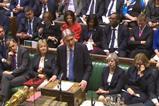This year’s Budget did give a much needed £44bn boost to the housing sector. But, asks Michael Dall, will it be enough to boost supply?
Not the most illuminating Budget, but at least Philip Hammond had a new joke writer. I actually chuckled at one of them, when I usually just want the ground to swallow me up. Gone are the days of George Osborne promising to “study the viability” of x, y or z.
Hammond is heavy on detail compared to his predecessor which is to be welcomed. And he did not shy away from fronting up to the major downgrades to economic growth. In March, the economy was forecast to grow by 2%, today it is 1.5%. Subsequent years are also downgraded demonstrating that the UK has now moved into the slow lane. But the Budget did give a much needed boost to the housing sector - £44 billion to be precise.
The overall goal is to build 300,000 homes per year by the middle of the 2020s. That is ambitious in the extreme. I would imagine this will be as attainable as the budget surplus first promised by 2015, and now not even mentioned. However, at least the issue of housing is now towards the top of the agenda, where it should have been all along. A raft of measures were announced to help the supply side (construction training, planning reforms) and the demand side (scrapping of stamp duty for first time buyers.)
Essentially, the government is doing everything it can bar stepping in and building houses itself. If these measures don’t increase housing supply in the manner anticipated will they be forced to cross the rubicon and do it themselves?































No comments yet